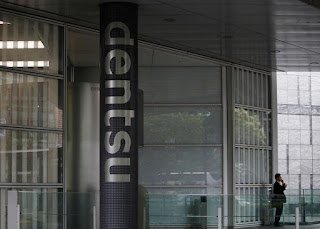Around 40 billion yen in negotiated contracts were awarded to firms involved in bid rigging for test events and competitions for the Tokyo Olympic and Paralympic Games, sources close to the matter say.
Some companies were also aware that they would be able to enter into further negotiated contracts for the actual competitions if they were successful in their bids for planning the test events, according to the sources.
The Tokyo prosecutors' special investigation squad and the Japan Fair Trade Commission are considering including both the test events and the games in the bid-rigging case they are building.
They suspect the collusion was connected with 26 open bids held from May to August 2018 for the rights to plan test events. These were awarded to nine companies, including Dentsu Inc. and fellow ad giant Hakuhodo Inc, as well as a consortium, for a total of 538 million yen.
The test events -- held so organizers can check for potential problems with operations, security and guiding audiences -- were carried out between 2018 and 2021 before the Summer Games were held after a one-year postponement due to the coronavirus pandemic.
Based on publicly disclosed information, the companies were awarded at least 20 billion yen in negotiated contracts for the operation of the test events and the actual competitions.
Prosecutors believe the bid rigging constituted a violation of the antimonopoly law, with a former operations executive of the event's organizers suspected of playing a lead role, and several employees on loan from Dentsu were also involved.
Authorities are also investigating how the companies were informed about the negotiated contracts.
The organizing committee for the Tokyo games is believed to have reported to the International Olympic Committee in April 2018 that it expected to continue its contracts with companies that had knowledge of the operation of the games.
A similar sentiment was reported during an executive board meeting in September 2019.
According to the sources, almost half of the 26 open bids only had one bidder. Prosecutors suspect that the former operations executive and other officials repeatedly updated a list of firms to use in arranging successful bidders.
The executive had told others that he was concerned about whether he would be able to secure companies for all of the competitions.
Dentsu officials initially denied being aware of any illegality during questioning by prosecutors but have since admitted to collusion.
